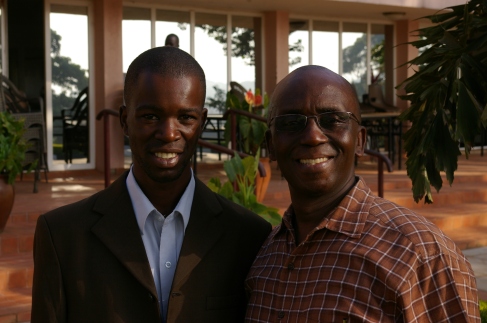Recently a controversy erupted around a Florida Atlantic University course on cross-cultural communication in which students were asked to write the name Jesus on a piece of paper and then consider stomping on it. It ended up getting a reaction from the Governor of Florida as well as national news headlines. Here is an Orlando Sentinel opinion piece by Beth Kassab in which she quotes my reaction to the incident. It is a great perspective by her and I highly recommend it, even without my quote.
OrlandoSentinel.com
Point missed on Jesus-stomping lesson at FAU
Beth Kassab
Local News Columnist
7:10 PM EDT, March 27, 2013
If the Florida Atlantic University Jesus-“stomping” instructor was trying to make a point about religious tolerance, then point taken.
Too bad so many people, including our governor, are missing the point.
You and I may not like the classroom exercise that was intended to create discomfort — asking students to write “Jesus” on a piece of paper and then step on it. But you can’t say it didn’t make you think.
On any other day, the instructor, Deandre Poole, would probably chalk that up as a success. What college teacher doesn’t want to push students to think about things in new ways?
Instead he is being vilified as insensitive and crass for, ironically, trying to teach a lesson about sensitivity and civilized behavior.
At least one student was so offended by the classroom exercise that he complained to Poole’s supervisor and got a lawyer to represent him, prompting Boca Raton-based FAU to apologize. Gov. Rick Scott called the student personally to apologize and has demanded a report on what happened.
I won’t argue that this lesson lacked elegance. And taste.
And I don’t know why Poole, who is also vice chairman of the Palm Beach County Democratic Party, chose to follow the suggestion in the instructor’s manual that Jesus be the focal point, when the same exercise could have been done with any number of other nonreligious symbols we hold dear, such as, say, the Declaration of Independence.
The incident has, naturally, generated an incalculable amount of misinformation and outright lies, like the student being suspended because he wouldn’t step on the paper. Not true.
Here’s what is true about what took place in Poole’s Intercultural Communication class on March 4:
The instructor’s manual for the textbook, “Intercultural Communication: A Contextual Approach,” advises teachers to have students write “Jesus” on a piece of paper and think about it.
“After a brief period of silence, instruct them to step on the paper,” the manual says. “Most will hesitate. Ask why they can’t step on the paper. Discuss the importance of symbols in culture.”
The instructor’s manual even includes this warning, though woefully understated in retrospect: “This exercise is a bit sensitive, but really drives home the point that even though symbols are arbitrary, they take on very strong and emotional meanings.”
In other words, the point of this lesson was not to insult Christianity — the manual even anticipates most students won’t step on the paper — but to compel students to understand the power of certain words and symbols.
Taking that a step further, because this is a course on intercultural communication, it’s likely meant to provoke empathy from students when people of other cultures or faiths are offended.
It was a provocative exercise, yes, but that’s what the First Amendment and academic freedom permit in this country.
When a Gainesville pastor wanted to burn a copy of the Quran, there weren’t any gubernatorial demands for an inquiry.
Local pastors I talked with endorsed the FAU instructor’s point, if not the method.
“Should we try to understand what it’s like to be a minority? Should we try to understand what it’s like to live in a culture unlike our own? That’s a very valuable lesson,” said the Rev. David Swanson, senior pastor at First Presbyterian Church in Orlando. “Picking a religious symbol was just an unwise choice.” Especially when it involves the central figure in the Christian faith.
The Rev. Dan Lacich, a pastor at Northland, A Church Distributed, said he never would have stepped on the paper if he had been in that class.
“There’s no need,” he said. “There’s a great opportunity to then say, here’s how I believe Jesus would respond to that offense … he doesn’t freak out and get mad and angry; he shows a better way.”
Point taken.
bkassab@tribune.com or 407-420-5448

